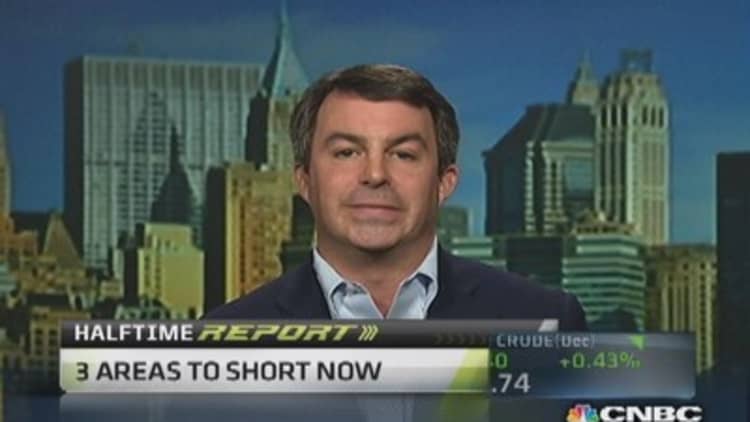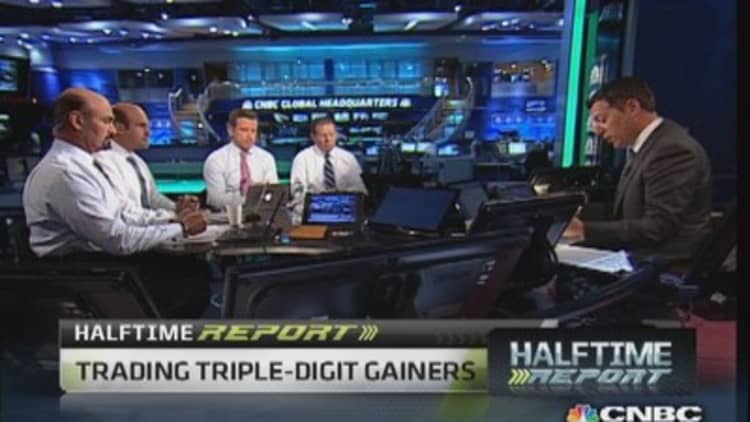
Once-in-a-generation stock bubbles have formed in three sectors, says John Fichthorn, co-founder of Dialectic Capital Management: solar energy, software as service and 3-D printing.
"I can't call the exact top," he said Wednesday. "We think the opportunity with any kind of reasonable time frame now is really the best we've seen since starting our firm 10 years ago, and really, since I've been doing this since '95, and I was a short-seller in the middle of the Internet bubble. In many ways, this is more compelling 'cause it makes even less sense that we're here today."
On CNBC's "Halftime Report," Fichthorn said the short opportunities were driven by more than just the Federal Reserve's monetary policy.
(Read more: Superbear Marc Faber sees bright spots)

"To a large degree, easy money drives bubbles," he said. "But here you have a bubble that is largely driven without fundamentals in certain areas, and so you have this crazy, bifurcated market where you've got incredibly cheap stocks and incredibly expensive stocks, really, inside the same sector. And when this easy-money period ends, and maybe even before as we see some of these fundamentals starting to soften, you're going to have an opportunity to make a lot of money on the short side."
Three-dimensional printing: "I am short 3D (Systems), and we think the entire sector is compelling as a short," Fichthorn said, adding that it "almost looks like a cheap stock."
"The entire industry has basically had, you know, a five to 10 times multiple expansion on a revenues basis and doesn't generate any profits. Certainly not any free cash flow," he said. "And 3D Systems just cut their earnings guidance for the year."
(Read more: 'Some pockets of value left' in stocks: Kate Moore)
Fichthorn added that three-dimensional printing was an industry with "low profitability and just captures imaginations, and we think it's about run its course at this point."
Solar energy: "We think the Chinese solar companies and even some of the other ones are bigger shorts, although First Solar will have its day of reckoning, as well," he said, adding that he did not have a position in First Solar.
One of the biggest problems in the sector was overcapacity, Fichthorn said, noting that the industry has 60 gigawatts of capacity in the face of demand below 40 gigawatts.
(Read more: Short sellers see once-in-a-lifetime opportunity—if they can survive)
"You can't have a supply-demand imbalance like that and make any money, and so ultimately these stocks are going to do exactly what they did in 2011, and they're going to correct again," he said.
Software as service: "This is the 2000 bubble over again," said Fichthorn, who is short the sector but didn't close which companies.
The only thing that has changed since the dot-com bubble was that they are now in the cloud, he added.
"So, you've got a more difficult growth model. You've got a less profitable model. And you have the same multiples you had in the Internet bubble," he said. "I never thought in my lifetime I would see the Internet bubble opportunity again, and here it is."
—By CNBC's Bruno J. Navarro. Follow him on Twitter @Bruno_J_Navarro.


